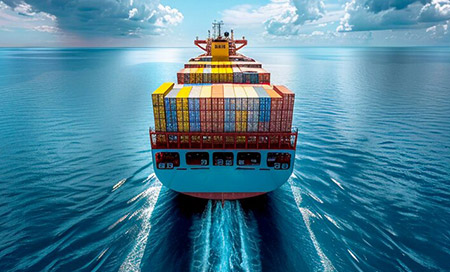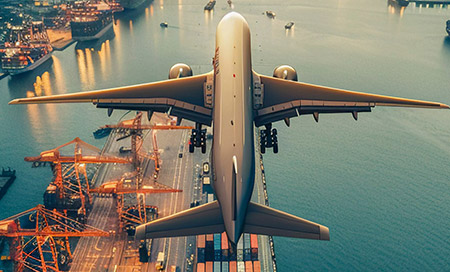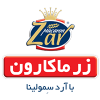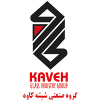Our Services
Our Services

Sea Freight

Road Freight

Air Freight

Rail Freight

Cargo Transit

Other Services
Why Us
Global Network of Agents
Partnership with international partners in China, Turkey, Europe, and the Middle East
Transparent and Competitive Costs
Clear pricing with no hidden fees, ensuring fair and reliable service
Expert Transport and Customs Team
Sales and logistics specialists with over 5 years of experience
Online Tracking and Reporting System
Real-time shipment status updates anytime, anywhere
24/7 Support
Fast and professional assistance throughout every stage of shipping

Price / Consultation Quote
Get a Quote for Our Services

Arian Global Network
Arian International Transport Company (Nilgoon Tarabar Arian – Private Joint Stock) began its operations in 2019 after obtaining an official license from the Ports and Maritime Organization of the Islamic Republic of Iran. Since then, with a professional and customer-oriented approach, the company has been providing international transport and logistics services.
With two specialized departments, Arian Logistics and Arian Line, the company offers a diverse range of sea, land, and air freight services, along with comprehensive logistics solutions, to clients across various industries, including petrochemical, mining, food, and industrial sectors.
The Arian Line Department, as an active unit in the NVOCC sector, provides maritime transportation services through transshipment routes to a wide range of international destinations. Meanwhile, Arian Logistics Department, with a holistic perspective, delivers integrated freight forwarding and logistics services to numerous global destinations, in compliance with international standards.
A firm commitment to delivering fast, reliable, and cost-effective solutions has positioned Arian as a trusted partner within the global supply chain and international transport industry.
A worldwide network for reliable transport, with agent coverage across multiple continents
Through its membership in the CQR network, Arian Logistics is connected to a global system of selected agents, ensuring quick pricing, transparent scheduling, and dependable delivery.
Your Satisfaction, Our Pride
Ready to work with us?
Blog
Have a Question?
We’re here to make things clear for you.
What is Cross Stuffing Operation?
Cross stuffing refers to the process of transferring cargo from one container to another. This operation, which involves a series of documentary and port-related procedures, is typically carried out to overcome challenges such as international trade sanctions or the lack of direct shipping services to the final destination by forwarding companies.
Due to the unloading and reloading of cargo during this process — especially for sensitive shipments such as refrigerated or high-value goods — cross stuffing is considered a highly important and delicate operation.
What Are Incoterms (International Commercial Terms)?
When buying or selling goods, shipments must be transported from the point of origin to their destination — and how this transfer will be managed should be negotiated at the time of purchase. To ensure both parties understand each other clearly, a common language is needed — and that language is known as Incoterms.
The term Incoterms is short for International Commercial Terms, meaning the international rules of trade. These terms are used to clearly define costs and responsibilities between the buyer and the seller.
Incoterms specify issues related to:
- The transportation of goods from seller to buyer,
- Customs clearance for import and export,
- Which party is responsible for paying various costs, and
- Who bears the risk of loss or damage during different stages of shipment.
Incoterms are developed and published by the International Chamber of Commerce (ICC) to standardize trade practices worldwide.
How Much Is the THC Cost?
The term THC (Terminal Handling Charges) refers to the costs associated with handling containers at a container terminal.
At Shahid Rajaee Port in Bandar Abbas, the THC rate is USD 177 for a 20-foot container and USD 266 for a 40-foot container.
When calculating the amount in Iranian Rials, the ICE foreign exchange market rate is used as the reference.
What Is a Container Yard (CY)?
The term Container Yard (CY) refers to a designated area within a port or terminal where containers are stored, either awaiting loading onto a vessel or dispatch to inland destinations.
In such an area, the carrier or its agent receives containers from the exporter, or conversely, after unloading from the ship, delivers them to the importer.
This term is also used in letters of credit, indicating that the carrier’s responsibility for the shipment or delivery of the container ends at this location.
What Is the Difference Between a Delivery Order and a Warehouse Receipt?
A Warehouse Receipt is a document issued by the Public Warehouses Organization when imported goods arrive at customs areas. This receipt indicates that the importer’s goods are being stored in public warehouses operating under customs supervision.
A Delivery Order, on the other hand, is a document issued by the international transport company, confirming that the consignee has settled the freight charges for their shipment. It authorizes the consignee to clear the goods from customs from the carrier’s perspective.
What Is Demurrage?
Demurrage is one of the most important and commonly used terms in maritime transportation. When containers are unloaded from a vessel, there is a free time period during which the customer is allowed to keep the containers at the port without extra charges. This free time is determined by the shipping line, and the containers must be returned before it expires.
If the containers remain at the port beyond this free time, the customer is charged a demurrage fee for each additional day. In other words, demurrage is the penalty fee imposed by the shipping lines when the consignee fails to return the containers within the allowed free time.
The amount of this charge varies depending on the type of container and is determined according to the tariffs announced by the Ports and Maritime Organization.



















